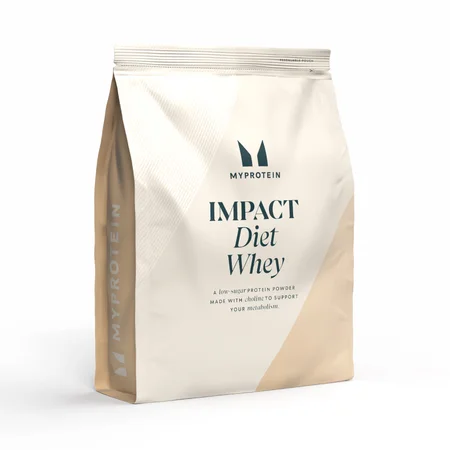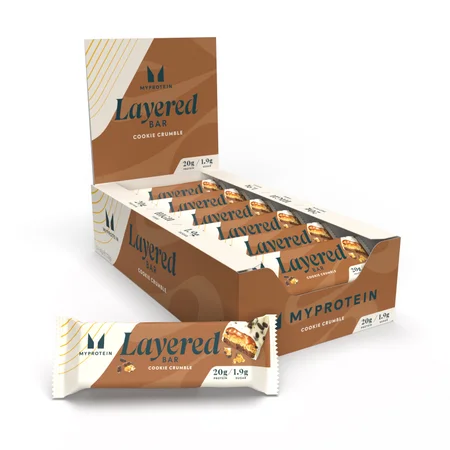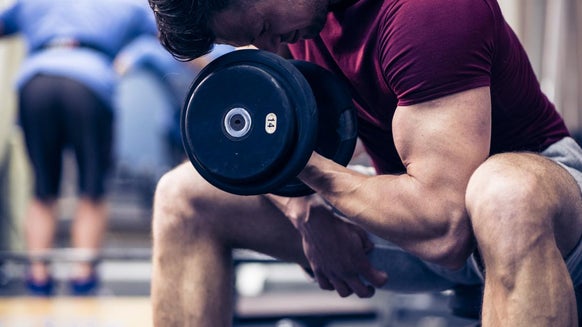Muscle Mass Declines With Age, Here’s How To Maintain

As we age, we tend to lose muscle and strength. The process is known as sarcopenia, and it affects us all eventually. But there are ways to slow down the process.
We’ve called on nutrition researcher Richie Kirwan to explain, and we’ve never seen him so excited. Turns out sarcopenia is his main research topic. That’s right — he’s an expert in losing muscle. (Richie’s words, not ours.)
Some people can lose up to 40% of their muscle mass between their prime in their 20s to their 80s. This might sound like it’s a long way off, but the changes you make now can set you in good stead for being the muscliest person in the retirement home.
The muscle loss process that begins in your late 20s can really speed up in your late 50s. And it’s not just muscle loss. You also lose strength.
This age-related muscle loss isn’t just bad news for retirement beach bodies, though. It can have a huge impact on health and quality of life.
Our personal favourite:
Lower levels of muscle mass and strength, and low muscle mass combined with high body fat are all associated with a variety of different health conditions.
Why do we lose muscle and strength?
Less physical activity
There are a few reasons why we lose muscle and strength as we get older. But arguably the most obvious, and by far the most important, is reduced physical activity. We've all heard it — retirement is a time to kick back, relax and just chill out. This might not be the best idea, though.
Of course, take it easy, but without a stimulus, such as physical activity, your body won’t be able to maintain muscle. And keeping up an inactive lifestyle is a one-way ticket to muscle loss. But it’s never too late to increase your physical activity. You can start by going for a walk and build from there.
People who engage in life-long weightlifting have the largest and strongest muscles, and this can lead to a greater quality of life in old age.
Anabolic Resistance
Another reason why you lose muscle as you get older is as a result of anabolic resistance. Older people’s bodies do not react as well to anabolic stimuli.
Let’s break it down in simpler terms.
Long-time followers of the series will be in the know about muscle protein synthesis (MPS) by now. It’s the body’s process of building and maintaining muscle. MPS can be stimulated through eating protein and exercising. And in older people — because the body does not react as well to anabolic stimuli — more protein and higher levels of training are needed to stimulate MPS to the same extent.
Other contributors to lower muscle mass as we age include:
- Insulin resistance
- High levels of inflammation
- Reduced protein digestion
- Lower levels of anabolic hormones
- Lower appetite
- Reduced blood flow to muscles
- Increased levels of body fat
Do we lose all muscle as we age?
There’s no need to panic. You won’t turn 50 and lose all your muscle overnight. While some degree of muscle loss is inevitable as we get older there are some lifestyle changes we can make to slow down the process considerably. And it’s even possible to gain muscle, too.
The single most important way is: get more active. All activity counts, so for people out of practice, walking is a great way to start. From there, progress on to resistance training — resistance bands, body weight exercises, machines or even free weights.
High-protein diets can stimulate MPS. For older people, getting between 25-40g of protein in each meal is especially important. This can prove to be a challenge for people with smaller appetites, so protein-dense foods and supplements can come in handy.
Creatine, vitamin D and omega-3 are just a few supplements that can help people hold on to more muscle and improve their quality of life.
Take Home Message
Age-related muscle loss can be a serious issue that affects quality of life as you get older. It might sound like a problem for “future you”, but lifestyle changes you make now can have a huge impact on reducing your chances of losing muscle and strength. You can start by staying active.
READ MORE HERE:










